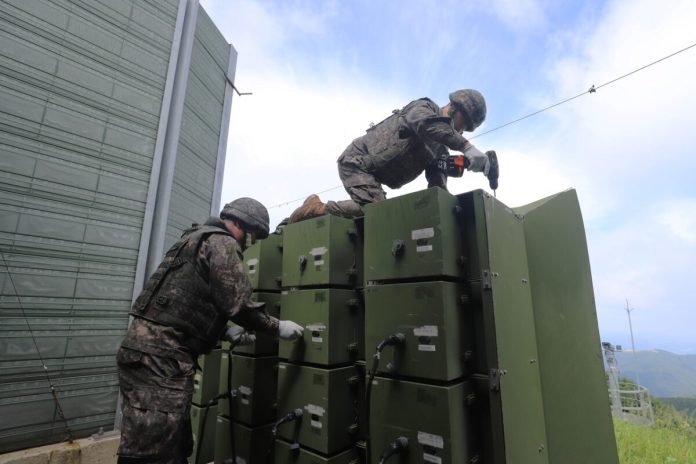South Korea’s military says North Korea has started taking down some loudspeakers along the inter-Korean border. This follows South Korea’s removal of its own frontline speakers, which broadcast anti-North Korean messages, aiming to ease tensions.
South Korea’s Joint Chiefs of Staff did not reveal the exact locations where the North is removing speakers. It is also unclear whether North Korea will remove all of them.
Border residents have often complained about loud, disruptive noises from North Korean speakers. These included howling animals and pounding gongs, broadcast in response to South Korean propaganda.
Ceasing broadcasts and easing tensions
South Korea’s military says North Korea stopped its broadcasts in June. This happened after President Lee Jae Myung’s administration ended South Korea’s loudspeaker broadcasts. This marked one of the first steps to improve relations.
South Korea began removing its speakers from the border earlier this week. However, the military has not said how they will store the devices or if they could be quickly redeployed if tensions rise again.
North Korea, sensitive to outside criticism of its leader Kim Jong Un, has not confirmed the removal of its speakers.
Background to loudspeaker broadcasts
Last year, South Korea’s previous conservative government restarted loudspeaker broadcasts after several years of silence. This was a response to North Korea sending trash-filled balloons across the border.
The broadcasts played propaganda messages and popular K-pop songs. These transmissions aimed to challenge Pyongyang, where Kim Jong Un has sought to suppress South Korean culture to strengthen his rule.
Broader political and military tensions
These psychological warfare tactics increased tensions already high due to North Korea’s nuclear programme. South Korea has also expanded joint military exercises with the United States and strengthened security cooperation with Japan.
President Lee, elected in June, wants to improve relations with Pyongyang. Relations worsened under former President Yoon Suk Yeol, whose hardline approach North Korea strongly opposed.
Kim Yo Jong, Kim Jong Un’s influential sister, rejected Lee’s attempts at dialogue in late July. She criticised Seoul’s close ties with the United States and said the new government was no different from its predecessor.
She also dismissed US plans to resume denuclearisation talks with North Korea. Pyongyang is focusing on building closer ties with Russia amid the Ukraine conflict and shows little interest in talks with Seoul or Washington.
Tensions could rise again later this month as South Korea and the United States hold their annual joint military exercises, starting 18 August. North Korea calls these drills invasion rehearsals. It often responds with military demonstrations and weapons tests to advance its nuclear programme.
